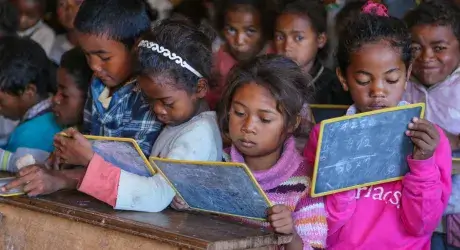Universal Basic and Secondary Education

This study investigated the rationale, the means, and the consequences of providing high-quality primary and secondary education to all the world's children.
What would it take to ensure that every child in the world, from age 6 to 16, receives an education of good quality? How important is universal education compared to other development objectives such as health, nutrition, income, and physical security? Would a concerted effort to provide universal education help reduce birth rates in countries where rapid population growth impedes economic development, damages the environment, and depresses living standards?
These are some of the questions that were addressed in the Academy project, Universal Basic and Secondary Education (UBASE), led by Joel Cohen (Rockefeller and Columbia Universities) and David Bloom (Harvard School of Public Health). The project assembled teams of scholars and practitioners from a wide variety of fields to begin the preliminary study of the rationale, means, and consequences of providing universal education. Participants offered informed but fresh perspectives on the magnitude of the challenge, the opportunity costs, and the potential benefits of such an ambitious undertaking.
People
Joel E. Cohen
David E. Bloom
Project Outcomes
Economists, developmental psychologists, demographers, statisticians, historians, cultural anthropologists, public health workers, business leaders, and others, working with representatives from the World Bank and the United Nations, joined with educators to study the environmental, demographic, economic, and cultural impact of universal education. They developed a set of thoroughly researched, multidisciplinary, and well-integrated reports that were published, along with critical commentary, by the Academy.
Media coverage included Reuters, Voice of America, and Education Week.

